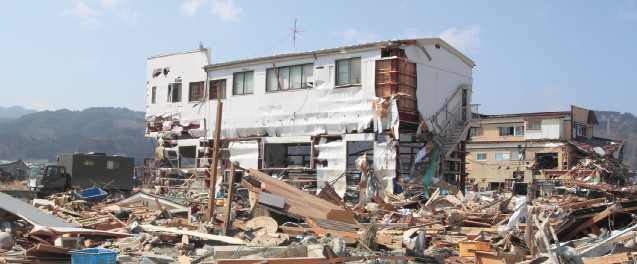By Christy Barritt
New Facebook Feature Reaches Out to Friends after Disaster
Facebook is unveiling a new feature that will allow users to let their friends know they’re safe after a disaster. The program is called “Safety Check,” and it’s a tool for people to use when a catastrophic event strikes.
“In times of disaster or crisis, people turn to Facebook to check on loved ones and get updates. It is in these moments that communication is most critical both for people in the affected areas and for their friends and families anxious for news,” Facebook said in an announcement.
When users who’ve been in an affected area log onto Facebook, the social media site will send a prompt asking if the user would like to let friends know they’re safe. From there, they can select either “I’m safe” or “I’m not in the area.” It will also allow friends to mark you as “safe” if they’re in the affected area as well.
Facebook said the new feature was prompted by the 2011 earthquake and tsunami in Japan.
Deaths by Painkiller Overdose Slow
Deaths by prescription painkiller overdose are still on the rise, but not a quickly as they once were.
The Centers for Disease Control and Prevention recently released a report that said while prescription drugs remain a large problem in the U.S., the rates of increase have slowed down drastically. Each year between 1999 and 2006, deaths from prescription drugs steadily climbed by 18 percent. From 2007 until 2011, the number of deaths only climbed 3 percent each year.
The CDC attributes the slowdown to the Food and Drug Administration’s warning to doctors and manufacturers about the dangers of methadone in 2008. Prior to this, methadone was commonly used as a painkiller. Other restrictions have been put on prescription drugs as well, which may have helped in the efforts.
Houston Subpoenas Ministers’ Sermons
In October the city of Houston called church sermons “fair game” for subpoena and tried to force several local ministers to turn over speeches related specifically to a transgender rights ordinance that passed earlier in the year. The city asked five ministers for “all speeches, presentations, or sermons” on a variety of topics, including anything on the city’s first openly gay mayor and gender identity.
Local ministers had been involved in legal efforts to overturn the Houston Equal Rights Ordinance, also know as the “bathroom bill.” The law allows transgender people to use the restroom of their preference. A swarm of criticism followed, with many calling this a threat to religious freedom.
As of press time, the city and its mayor backed down on the issue, saying that “pro bono attorneys” were behind the idea. They also said that neither the mayor nor the city attorney were aware the subpoenas had been issued until after the fact.
Atheist on Parole Receives $2 Million Settlement
After being forced to attend a religious drug treatment program, an atheist was awarded nearly $2 million after he filed a lawsuit claiming that his civil rights were violated.
Barry Hazle of Shasta County, California, was sent back to prison after he protested the drug treatment program while he was on parole. Hazle sued the California Department of Correction and Rehabilitation in Sacramento federal court six years ago. Hazle had spent a year in prison on drug possession charges, which were later overturned by an appeals court.
When it was explained to Hazle that the drug treatment program included references to God and prayer, Hazle requested an alternative but was told there weren’t any others.
 Christy Barritt is an award-winning author, freelance writer, and speaker living in Chesapeake, Virginia. She and her husband Scott have two sons. www.christybarritt.com
Christy Barritt is an award-winning author, freelance writer, and speaker living in Chesapeake, Virginia. She and her husband Scott have two sons. www.christybarritt.com



Comments: no replies